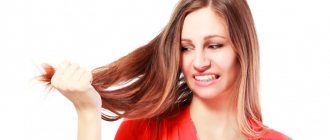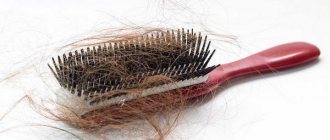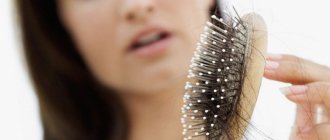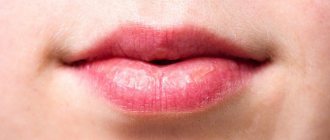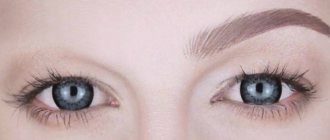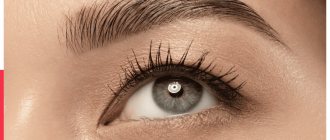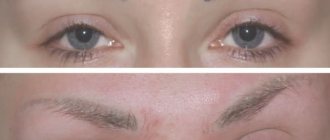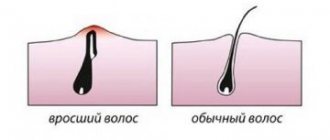Causes of hair loss
Stress, diet, frequent use of curling irons, coloring, hormonal problems, diseases of internal organs - all this can trigger hair loss.
Photo: https://unsplash.com/@bayleejadegramling
Recently, trichologists have noticed another problem - after coronavirus, many people have experienced itching, burning, tingling in the scalp, and as a result, hair loss. “This is primarily faced by those who have suffered a coronavirus infection with a high temperature reaction, patients with severe forms of pneumonia, as well as those who have required hospitalization. There are several explanations here: there is a theory according to which increased hair loss occurs directly from the action of the virus, since at this time the immune system is very reactive and reacts with a hyperresponse, releasing a large number of pro-inflammatory mediators, this turns out to be stressful for the hair and such hair ends up in the resting phase ahead of time. Thus, many hairs are in the resting phase at the same time. This phase usually lasts several months. The second theory is that coronavirus infection leads to the formation of microthrombi. They can be in the microchannel of the hair follicle. This is why hair does not receive enough blood supply, oxygen and nutrients, which leads to hair loss. A third reason may be medications with a powerful immunosuppressive effect, which can contribute to increased hair loss. It is possible to check whether the patient really suffers from excessive hair loss only by consulting a trichologist. For these purposes, two tests are carried out: the first is trichoscopy to determine the condition of the hair and scalp at the moment, the second is a phototrichogram, which consists of two stages that allow you to assess the ratio of hair in the growth phase and the loss phase,” explains Vladimir Vavilov, trichologist, dermatovenerologist, oncologist GMS Clinic.
What to do if your hair has become thin and sparse
Thin and thin hair is a common problem among many people nowadays. However, in most cases this is not a genetic problem; it is congenital in only 10 percent of cases. In all other options, the reasons for this hair condition lie in something completely different. If your hair has become thin and sparse, you want to know how to restore it, then this article may be useful for you. In it we will look at why the hair has become very thin and sparse, what can we do about it?
Causes of thin and sparse hair
Why does hair become thin and sparse? What to do in this situation? First, let's look at the main reasons for this hair condition.
Cold. Too low temperatures typical for the winter period can negatively affect the condition of the hair. They may begin to weaken, all because the cold can lead to spasm of blood vessels, which are necessary for normal nutrition of the hair follicles. For this reason, you should not walk around in winter without a hat if you want to maintain your own health and have beautiful and healthy hair.
Hormonal problems. Certain problems with the thyroid gland can cause hair loss. Also, the cause of baldness can be a high level of sensitivity of the human body to testosterone. It is for this reason that some men face the problem of hair loss. At the same time, it cannot be said that women cannot experience a similar situation, although for them the likelihood of its occurrence is significantly lower. A much more dangerous moment in this regard for women is the period after childbirth, as well as the time during menopause. And often this is the answer to the question - why is a girl’s hair thin and sparse?
Lack of iron. This problem occurs more often in women than in men. An insufficient amount of this chemical element in the human body can lead to deterioration of hair condition and a number of other problems, including: decreased appetite, excessively dry skin, drowsiness, and weakness.
Stress. Stress can negatively affect the entire human body, including his hair. A certain number of hair follicles may die because of it, while others stop developing normally and die only after a certain period of time. For this reason, some hair does not begin to fall out immediately during stress, but approximately 2–5 months after it.
Chemical exposure. If you often perform hair operations such as dyeing, frequent curling, hair lightening and much more, this can lead to a significant deterioration in the condition of the hair on your head. This problem is especially relevant if insufficient quality cosmetics are used. If your hair has become thin and sparse, folk remedies can help in this case.
Medicines. There are certain groups of medications that can have a very negative effect on the condition of the hair. These include the following medications: blood pressure pills, hormonal contraceptives, drugs that use interferon and heparin.
Rapid weight loss. A sharp decrease in body weight is the case when approximately 10% of body weight is lost in 2 months. Many modern diets promise to achieve this effect. However, such rapid weight loss can lead to a number of health problems, including deterioration in hair quality. For this reason, you should lose weight carefully.
Skin diseases. There are a considerable number of skin diseases that can also lead to deterioration in hair quality. Such diseases include seborrhea, dermatitis and some others.
Hair has become thin and sparse in women; reviews indicate that the reasons for this may be different, so each specific case should be carefully studied.
How to cure thin and sparse hair?
People faced with this problem often ask the question: the hair has become thin and sparse, what should I do at home? When answering this question, it is important to take into account the fact that the reasons for thin and sparse hair are different for each person, so it is important to take into account individual characteristics.
The following options may help:
Improving your diet The process of hair restoration should first begin with the right diet. It is best to give up various unhealthy foods, such as fast food and processed foods. You should definitely add foods such as fish, beans, meat, tofu to your diet. As you know, 95% of the elements of hair structure are keratin protein, so the body requires structural elements to build healthy and high-quality hair. Also, many people are interested in what vitamins to take to solve this problem if they have thin and sparse hair? Most likely, medical experts will recommend that you pay attention to mineral complexes that contain zinc and iron. It would also be a good idea to consume foods containing these compounds - peanuts, fish, apples, sesame oil and many others.
Cosmetics Caring for thin and sparse hair in women should begin with the selection of suitable cosmetics. Now in many stores you can find a fairly large assortment of them. These are primarily shampoos, as well as special masks. Of course, in no case should you expect miracles from such remedies. Most of their effects are a publicity stunt. However, these products may well improve blood circulation in the scalp, as well as nourish them with certain beneficial substances. This will not completely solve the problem, but it can significantly improve the condition. As practice shows, the best shampoos for thin and sparse hair are thickening.
Folk remedies Answering the question of thin, soft, sparse hair, what should I do? Many people recommend paying attention to folk remedies, which, when used correctly, can give a good effect. These remedies include, first of all, masks using castor oil, masks made from onion broth or nettles. We can say that this will most likely not allow thin, sparse hair to grow well, reviews say so anyway.
Vitamins Sometimes hair falls out and becomes much worse due to a lack of vitamins. First of all, this concerns the following vitamins: B, E, C, PP, A. To solve this problem, you should add foods rich in these vitamins to your diet or drink special vitamin-mineral complexes. Therefore, if you are interested in treating thin and sparse hair at home then this option may be for you.
Medicines Modern pharmaceutical companies produce a fairly large number of different products that can solve the problem of thin and sparse hair. One of the most famous drugs is minoxidil. This product works well, but you should keep in mind that after you stop taking it, your hair will return to its original state.
If you are interested in caring for thin and sparse hair at home, the tips presented in this article may help you.
When should you go to a trichologist?
You should contact a trichologist if you had problems with your hair before the coronavirus and if your hair loss lasted for several months. “If we talk about seasonal hair loss, it does not require special treatment. This is a natural process that regresses on its own. As for post-Covid hair loss, we are trying to stabilize the condition and help patients. It is clear that “acute” hair loss, as a rule, goes away on its own, but this is a huge stress for our hair. Therefore, recovery may take 6–8 months. The doctor will select the appropriate treatment, these could be vitamin complexes, and it is also possible to prescribe mild growth stimulants externally,” notes Vavilov.
The hair on the back of my head has fallen out, what should I do?
Depending on the results obtained, treatment is prescribed. It can be medicinal, hardware, or radical (if all else fails) - hair transplantation. Among the drugs, minoxidil, finasteride, glucocorticosteroids, anthralin, and tretinoin have proven themselves well.
But a reservation should be made: you absolutely cannot take them on your own! Only as prescribed by a doctor, since all of them are quite strong medications that have serious contraindications. Drug therapy is often combined with physical therapy. This includes dersonval, laser, electrophoresis and electrotrichogenesis.
In any case, the specific therapy must be prescribed by a medical practitioner. Self-treatment of nape baldness is fraught not only with a lack of effect, but also with a possible harmful effect on the patient’s health.
Post Views: 278
Home care
It is important to understand that it is impossible to stop the loss of hair that has entered the dormant phase. And the main task is to stimulate the growth of new hair. In order to return the hair follicles to the active phase, choose shampoos, lotions and balms that stimulate hair growth. Many experts advise using scalp scrubs several times a week, before shampooing - they stimulate blood circulation and have an exfoliating effect.
1 — activating hair growth spray, Oribe, 2 — shampoo for restoring scalp balance “Common People,” evo, 3 — Burdock hair oil, Eveline Cosmetics, 4 — strengthening tonic against hair loss for daily use, Leonor Greyl, 5 — hair growth product with rosemary, Weleda, 6 hair growth enhancer Hair Booster, Nioxin, 7 - hair growth activator shampoo with black pepper, parsley extract and panthenol, Mixit
Vitamins against hair loss and various food supplements should not be prescribed for yourself - it is better to contact a specialist and select the necessary microelements and minerals. Also pay attention to your diet - include olive oil, nuts, avocados, fish, turmeric and ginger.
Avoid hairstyles that are too tight—while a high bun always looks cool, it can put extra stress on your strands. But a scalp massage, on the contrary, will help increase blood circulation and activate metabolic processes.
Effect of high and low temperatures
Any modern lady cannot imagine her life without a hair dryer or straightening iron. The ability to instantly dry your curls, curl or straighten them - this list is simply irresistible. However, frequent infatuation with such manipulations causes irreparable damage to the hair, which not all fashionistas think about. Regular use of a hot air stream for drying or constant exposure to the high temperature of a curling iron causes a destructive effect, causing the curls to become brittle, lose their elasticity and natural shine. If the harmful effects are not stopped in time, then alopecia is almost guaranteed.
Drying completely wet strands is especially dangerous. Experienced hairdressers and trichologists categorically prohibit such a procedure, since in this case there is a maximum detrimental effect not only on the ends, but also on the roots.
Low temperatures also have a detrimental effect on hair. Hypothermia negatively affects the condition of the bulbs - they do not receive sufficient nutrition. In winter, it is recommended to wear hats to protect your hair and skin from temperature changes.
Salon and medical procedures
There are cases when home treatments and remedies against hair loss no longer help. Then there is a reason to turn to professionals. Among salon procedures, the most famous are mesotherapy, plasma therapy and micrografting.
With mesotherapy, minerals, amino acids and vitamins necessary for the health of the hair roots are introduced into the scalp using injections. This procedure not only prevents hair loss, but also stimulates new hair growth and strengthens it. During plasma therapy, platelet mass or plasma is isolated from the patient’s own venous blood and injected into the affected area, which helps to launch the body’s reserves and regeneration. Micrografting is a procedure in which healthy hair is transplanted into problem areas.
Baldness on the top of the head in men
Factors that provoke hair loss are common in men and women (with the exception of pregnancy and childbirth). The algorithm of actions is similar: start with a visit to the doctor. On the top of the head, hair may fall out due to several types of alopecia:
- Androgenetic: hair falls out on the temples, crown, and frontal part, but remains just as thick on the back of the head. It occurs in both men and women, but is less common in the fair sex. Androgenetic alopecia is associated with excess testosterone.
- Diffuse: the hair thins evenly, but the crown suffers the most. It is more common in women, but men are also susceptible to it. There are several reasons: diseases of internal organs, treatment (for example, chemotherapy).
- Nested: lesions appear not only on the top of the head, but also wherever there is hair. The cause may be injury, autoimmune or endocrine pathology.
- Cicatricial: at the site of the scar from surgery or injury, connective tissue grows, in which there are no hair follicles. Another reason is pustular skin diseases, which leave scars. In 3% of cases, this pathology develops on the scalp.
Men will benefit from the same advice as women: see a doctor. While the examination is underway, start taking vitamins and making strengthening hair masks. The only difference is that it is easier for men to disguise the defect. It is better for them not to think about how to hide the sparse hair on the top of their head, but to choose a suitable hairstyle. A shaved skull can look very attractive to ladies. Remember Vin Diesel, does he really need voluminous hair?
Another solution for both sexes is hair follicle transplantation. It is done by cosmetology clinics, but this procedure is not cheap. A transplant per 1 cm2 will cost 150 - 200 US dollars. And it doesn’t always help: with diffuse alopecia, the result does not last long.
